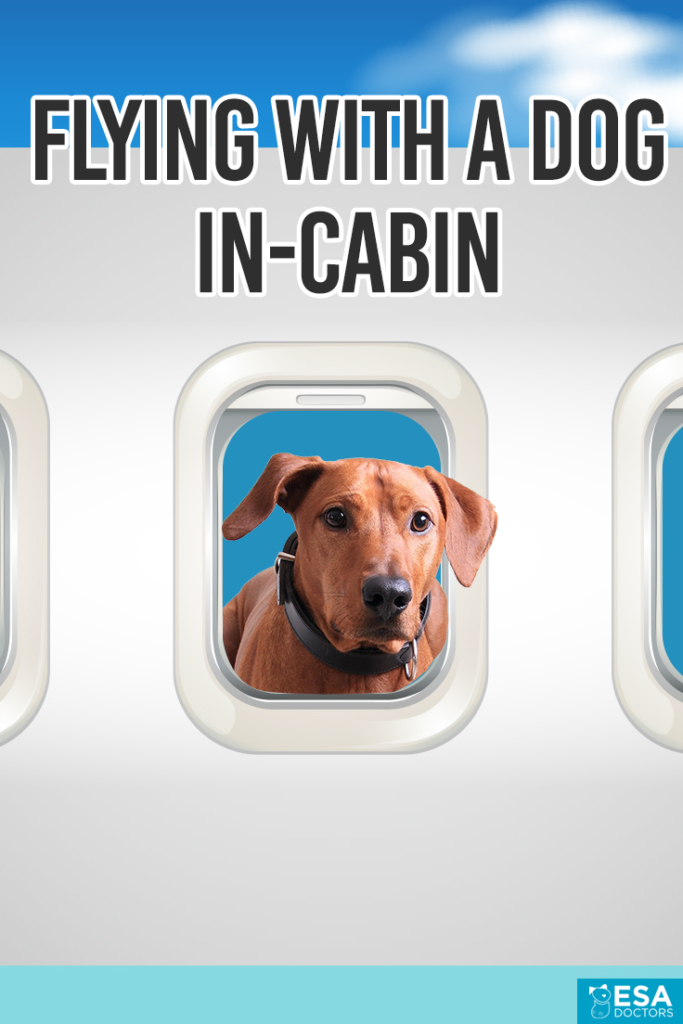The role of an animal in some people’s lives goes above and beyond just being a pet. Emotional support animals (ESAs) provide essential support to emotionally or mentally distressed individuals. Owners of emotional support animals in New York have special rights under Federal law that protect their right to have an ESA when it comes to housing.
The great news for New Yorkers is that in August 2020, New York passed legislation affirming the rights of tenants with ESAs by prohibiting housing providers from discriminating against anyone who relies on an emotional support animal for assistance. Governor Andrew Cuomo was quoted as saying, “New Yorkers have zero tolerance for discrimination of any type, and this measure will protect some of the most vulnerable among us who require a support animal to help function in their daily lives.”
Let’s explore the rights of emotional support animals in New York and examine how to qualify for one. If you believe that you may qualify for an emotional support animal, please complete the questionnaire at the link below. ESA Doctors will connect you with a New York licensed healthcare professional to assist you with your New York ESA letter.
What Health Conditions Qualify for an ESA in New York?
To qualify for an ESA in New York, a licensed healthcare professional has to determine that you have a disability that is helped by the presence of an emotional support animal. Fair Housing rules define a disability as a condition that substantially limits a major life activity. Emotional support animals are used to help with disabilities relating to mental and emotional health.
Examples of disabilities that can qualify for an ESA include but aren’t limited to:
- Anxiety
- Depression
- Fears and Phobias
- Panic Attacks
- PTSD
- Social Anxiety Disorder
If your depression, anxiety, or other mental health issue makes it hard for you to live a normal life, you may qualify for an ESA. If you qualify, your licensed healthcare professional can provide you with an ESA letter that you can present to your landlord to prove that your animal companion is an ESA.
How to Get an ESA in New York
How to legitimately get your emotional support animal in New York
- Determine your need for an ESA
Only people with a disability can qualify for an ESA. If you suffer from a mental disability (depression, anxiety, PTSD, etc.) that limits your ability to perform a major life task, you may be a good candidate for an ESA.
- Seek help from a mental health professional
In order to legitimize your animal as an ESA, you must seek help from a New York licensed mental or healthcare professional. This can be done either in person or online.
- Get an ESA letter
Get your ESA letter online or in person. The document that allows you to distinguish your animal as an ESA is an ESA letter from a licensed mental or healthcare professional. The letter must be on their letterhead and include their licensing information.
- Submit your ESA letter for housing/rental units
To live with your ESA in an apartment, condo, co-op, etc., you must submit your ESA letter to your landlord, management company, co-op board, etc. They must respond in a reasonable time, usually within 10 days.
Emotional Support Animals in New York Apartments and Co-Ops
Under New York law, you have the right to live with your emotional support animal in rental units, condos, co-ops, and other types of housing, even if the building has a strict “no pets” policy. Housing providers cannot charge their tenants any fees or deposits for an ESA or impose weight or breed restrictions on the animal. New York housing providers cannot discriminate against you for having a disability and requesting reasonable accommodations.
A landlord must reasonably accommodate your emotional support animal if:
- You have a mental or emotional health issue that limits one or more major life activities.
- An emotional support animal helps to alleviate symptoms of that condition.
- You have an ESA recommendation letter from a licensed healthcare professional.
While an emotional support animal, by definition, does not require any specialized training, your ESA needs to be well-behaved and obedient. A landlord, HOA, or co-op board can deny your request to live with your ESA if your animal causes significant damage to the property or is determined to be a health or safety threat to other residents. In those situations, the landlord’s interest in maintaining the safety of the community would outweigh the tenant’s interest in having a potentially dangerous support animal.

How to Apply for Housing With An ESA
Once you have qualified for an ESA, you should clear the emotional support animal with your landlord before bringing it home if you live in a building that prohibits animals. Under Fair Housing rules, the landlord has to respond promptly to your request and can only deny your request in limited circumstances, such as if they determine your ESA is dangerous to others. You can submit a request for an ESA before or after signing your lease.
To prove your animal companion is an ESA, you will submit your ESA letter for housing to your housing provider. Your ESA letter should be from a healthcare professional licensed for New York and be written on their letterhead. Some landlords may require additional forms along with the ESA letter that your healthcare professional can complete. You should be aware, however, that you have a right to privacy under Fair Housing laws. The housing provider cannot ask for specific details regarding your condition or diagnosis, and they also cannot request medical records from your licensed healthcare professional.
Tenants in New York with emotional support animals have a right to confidentiality when it comes to sensitive information regarding their need for an ESA. Landlords in New York cannot require you to divulge private medical information.
The following are some basic steps for requesting housing accommodation for an ESA in New York:
- Qualify for an ESA by obtaining an ESA letter from a NY-licensed professional. To qualify for an ESA letter, submit your request here.
- Let your housing provider know that you have an ESA.
- Submit your ESA letter to your landlord, HOA, or co-op.
- Engage in active dialogue with your landlord to address any concerns they may have, but remember that you have a right to privacy about your condition.
Flying With an ESA or PSD from New York
The Air Carrier Access Act used to allow ESA owners to fly with their emotional support animals in the cabin. In January 2021, the rules were changed, and the DOT allowed airlines to refuse emotional support animals on flights.
However, airlines cannot charge Psychiatric Service Dog (PSD) owners pet fees for flying with their PSD. Your PSD must be well-behaved and in your control at all times at the airport and during the flight and cannot pose a health or safety threat to other passengers.
If your ESA provides a service or task for your disability, it may qualify as a PSD. Read more about turning your ESA into your PSD here.
You will need to submit your PSD accommodation request to your airline 48 hours prior to arriving at the airport. The airline will require you to submit certain paperwork to them before your departure date. It’s best to check with your airline in advance to see what their exact requirements are and to submit all paperwork for clearance before your flight. To find your airline’s PSD policy, contact your airline directly or follow the link here: AIRLINE POLICIES.
If you’re interested in qualifying for a Psychiatric Service Dog Letter, click on the link below to be connected with a licensed healthcare professional.
Get your Psychiatric Service Dog Letter Now
New York ESAs and the Workplace
Emotional support animals have rights in the home and on flights, but they do not have the greater public access rights that service dogs enjoy. Services dogs are protected through the Americans with Disabilities Act and are allowed in areas open to the public and the workplace. A primary difference between service dogs and ESAs is that service dogs perform trained tasks to help with a disability. In contrast, ESAs do not require training and provide emotional support just through their presence.
Emotional support animals do not have an automatic legal right to be accommodated in the workplace in New York. However, some workplaces have policies in place regarding assistance animals. If you are interested in bringing an emotional support animal to work, it’s best to check with your employer to see if they would be open to such accommodation.
Conclusion
Like residents of every other state, New Yorkers enjoy the benefits of Federal rules that protect ESA owners. In addition, the recent legislation that was passed in New York further emphasizes the importance of ESAs and protects the rights of tenants. Senator Monica Martinez of New York said that this legislation “will protect the rights of individuals who depend on an animal to provide emotional support and/or comfort on a daily basis.” New Yorkers should be proud that their lawmakers have taken action to further protect the rights of ESA owners.
If you’re a New Yorker and think you could benefit from an emotional support animal, it’s worth discussing it with your therapist or doctor – your mental health could depend on it. If you do not have access to anyone who can help, ESA Doctors can connect you to a professional licensed for New York who can assist you in qualifying for an ESA online.









I rent and do not have a dog but want to ADOPT one and get it registered as an ESA. Dogs are not allowed in my complex. In order to adopt, the organization calls the landlord to see if they are allowed. Of course, they will say no. How can I circumvent this issue?
First, just to clarify, you do not need to register an ESA. To qualify for an ESA you will need an ESA letter from a licensed healthcare professional. Once you have an ESA letter, you can try to clear your future ESA with your landlord before adopting one.
My co-op gave me trouble for my esa dog, but your support staff really helped me with what to do and say when they pushed back. New York housing laws are so archaic and pro landlord but knowing that I can live with my esa with the full backing of the law and have some peace of mind.
Thank you so much! We’re grateful for the opportunity to help you!
What I can do if my coop before I got my apt.i sign a restriction pet policy I can still bring my ESA dog now with the concern I need my dog to live a happy and healthy life?they don’t allow my dog not for visit also .extreme sad
ESAs are exempt from pet restriction policies because they are not considered pets, they are assistance animals under federal law.
My heart is broken over there lose of my support dog of 10 yrs IAM disabled and can’t afford much to adopt one so I am in search of dome that may beable to help me or put me in a good direction I would be so greaful thankyou